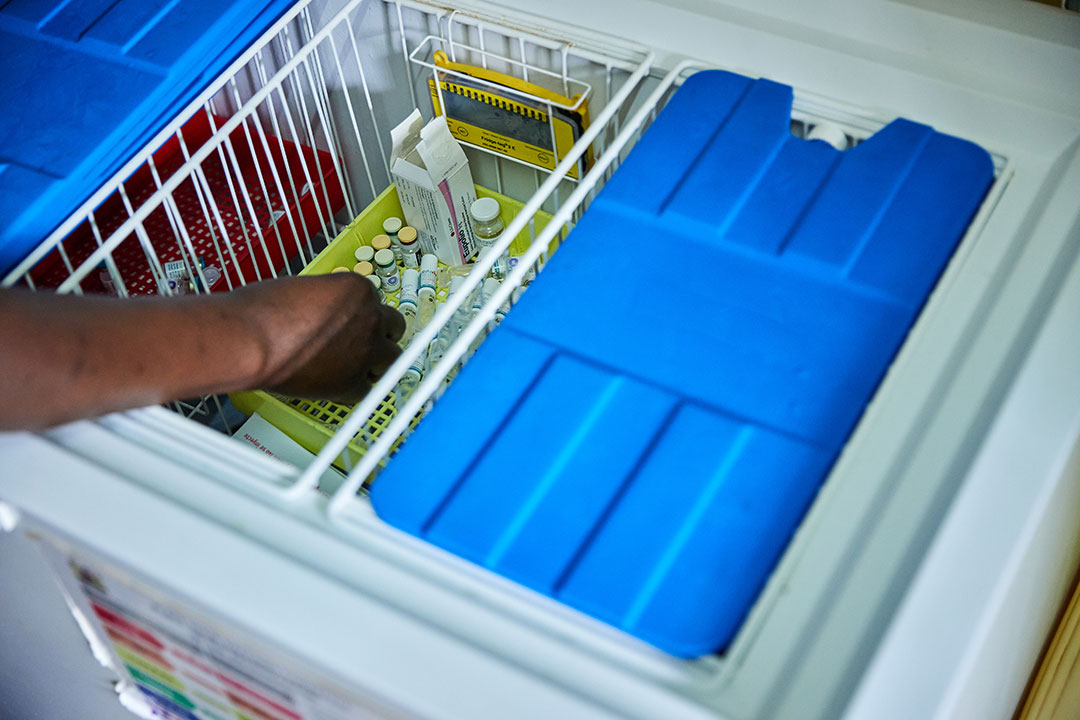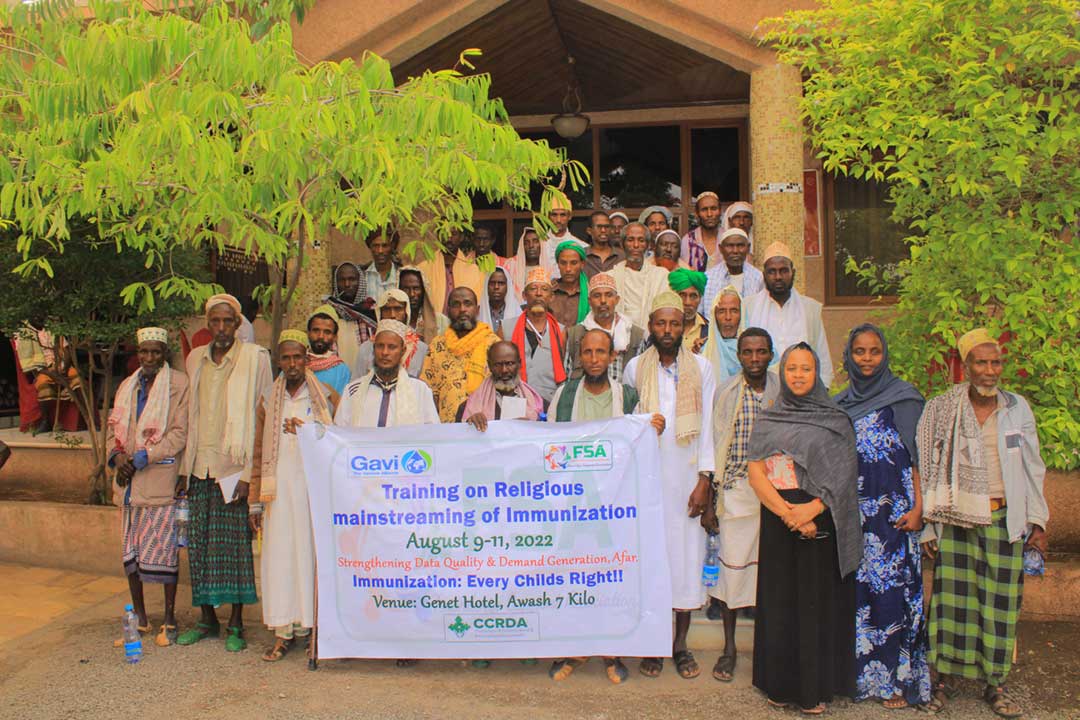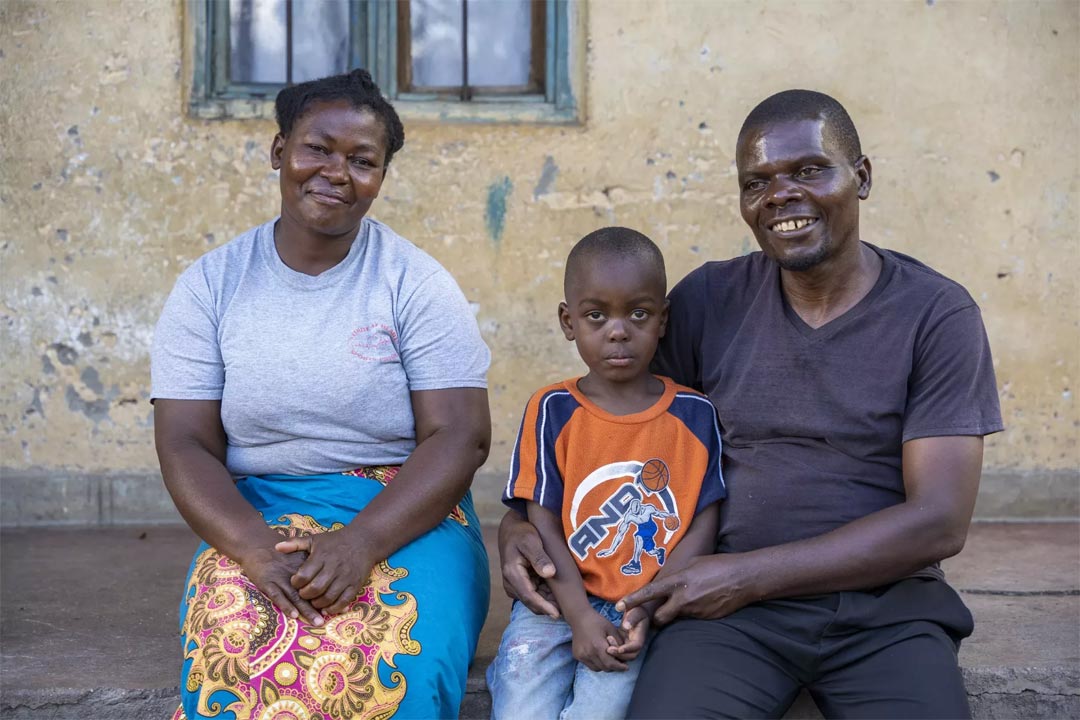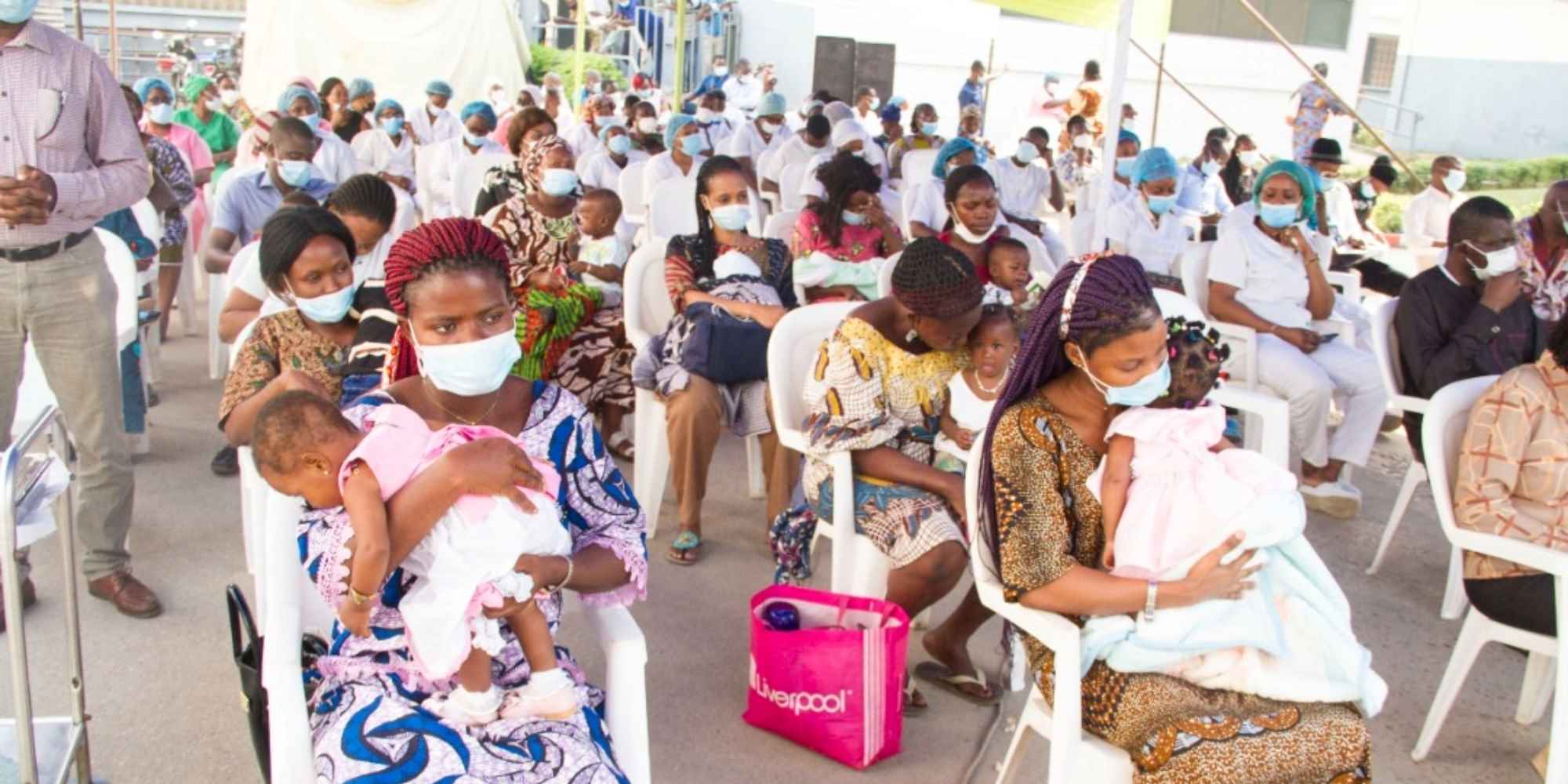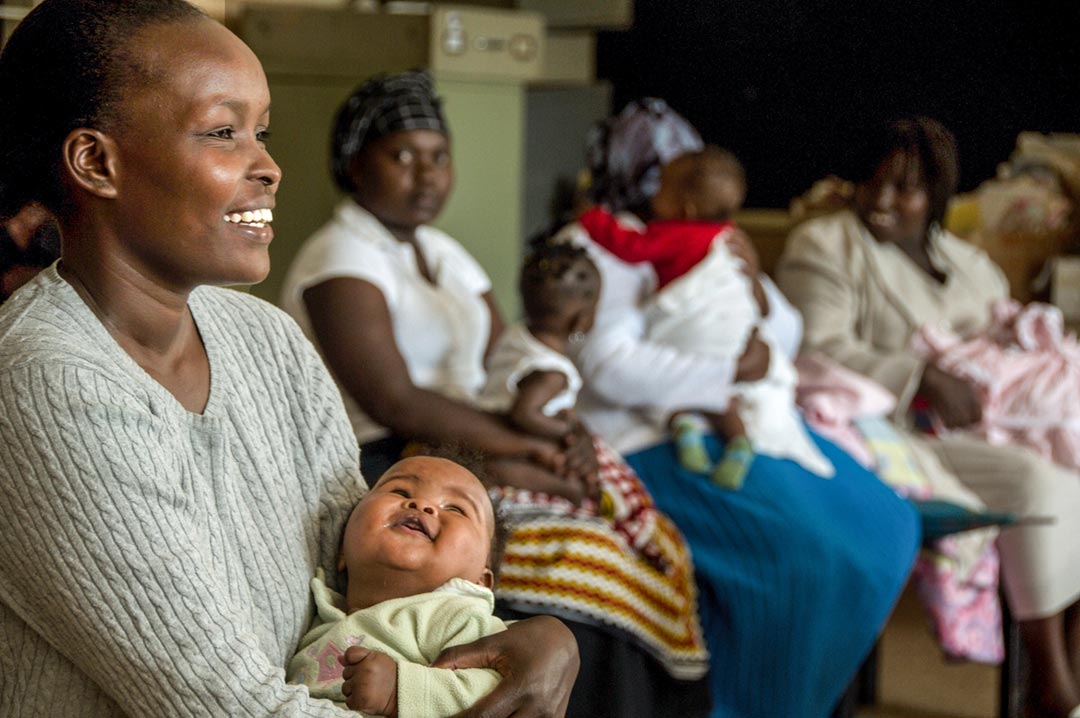“In our village, when you hear the word cancer you know that death is near": fighting Benin’s cervical cancer taboo
Until a few years ago, Beninese women perceived cervical cancer to be a shameful disease. Today, thanks to campaigns to promote awareness and communication, women are becoming more aware of the need to detect the disease early.
- 18 September 2023
- 6 min read
- by Edna Fleure

An early diagnosis of cervical cancer is essential for rapid treatment. Aline D. realised this too late. Following the urging of her daughter, who is a nurse, she decided to go ahead with the screening and got the result that many women fear.
She talks about the day her life turned upside down. "I gave birth to all my children at home. Maybe I didn't get the care I needed, I don't know. But the day the doctor told me I was positive and that the illness had reached an advanced stage, I thought of my children, of the sacrifices I'd made all these years only to find myself suffering from a disease that could mean the end of my days at 55 years of age. In our village, when you hear the word cancer, you know that death is near."
Like Aline, there are many women in Benin who, fearful of learning that they are positive, prefer not to undergo screening. Inès Comlan lost her mother. She died of cervical cancer at the age of 65. Considering society's view, and especially the indifference of the family when her mother tested positive, she has chosen to live in ignorance, even though she encourages women to get tested.
"I think I’m still coming to terms with my mother’s death. My reluctance has nothing to do with lack of belief in the existence of the disease on my part. I know it exists. But I’m not ready to make this journey of discovery."
– Inès Comlan
"I think I'm still coming to terms with my mother's death. My reluctance has nothing to do with lack of belief in the existence of the disease on my part. I know it exists. But I'm not ready to make this journey of discovery."
But not everybody is a sceptic. Some women take it seriously and get tested early. That was the case for Mariam I. Even though her diagnosis was positive, she knows she has a chance of recovery. "When I got here, they tested me and found that I was already carrying the virus, but that it wasn't serious. They gave me the treatment and advice to follow. It's a disease that you can't feel or see, and it's only after screening that you know whether you've got it or not. The screening is completely free, I haven't paid for anything, and the treatment is free too.
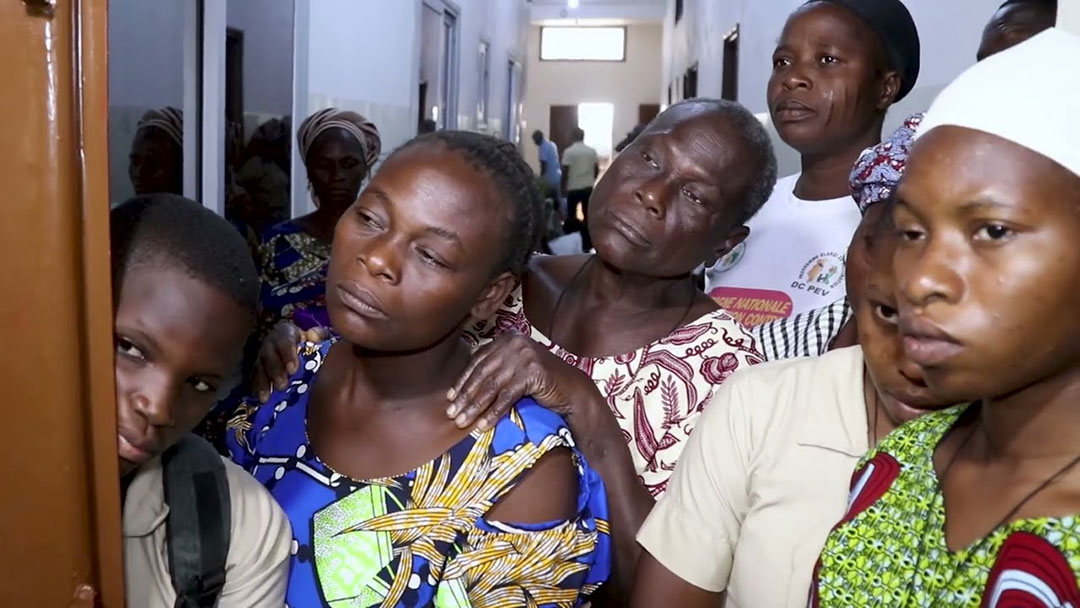
Credit: Edna Fleure
Free screening
Like many countries, Benin has a strategic plan to combat cervical cancer and other gynaecological and breast cancers. The aim of this document is to coordinate the fight against this scourge, to alleviate the burden that kills women and ruins families.
"Thanks to the free cervical cancer screening and treatment campaign, women are coming forward and are happy to be screened. This is very important, because cervical cancer is a silent disease. Today, one of the women who came in has tested positive, so that’s one person saved."
– Bénédicta Nouhatin, midwife, Parakou Municipal Health Centre/h6>
The plan was adopted after the company joined the Care4Afrique project, "Cancer Remedy in 4 African countries", in 2019, initiated by the Princess of Morocco's Lalla Salma Foundation and the World Health Organization's (WHO's) International Agency for Research on Cancer. The country now offers free screening and treatment for precancerous cervical lesions for women aged 25 to 49.
Among the organisations working to combat cervical cancer is the Claudine Talon Foundation, which launched a free screening and treatment campaign in all Benin's communes a few years ago. Last year, 17,628 women were screened, 1,242 tested positive and 896 were treated.
Have you read?
Bénédicta Nouhatin is a midwife at the Parakou Municipal Health Centre. She confides that with free screening and treatment, women are coming to the centre to find out their status. "Thanks to the free cervical cancer screening and treatment campaign, women are coming forward and are happy to be screened. This is very important, because cervical cancer is a silent disease. Today, one of the women who came in has tested positive, so that's one person saved."
Stigma delays early detection
At one time actively engaged in sabotaging awareness sessions, Alimatou Dinan has now resolutely committed herself to the fight against cervical cancer after seeing her only daughter cured of the disease. "In our village, several women have been repudiated after testing positive. So for me, it's a disease of shame. Men say that it is women who commit adultery who suffer from this disease. So I was completely against screening. But today I realise that it's the only way to be saved in time, and I encourage women every single day in God's world."
"Unfortunately, the fact that we have been late to acquire this awareness has led to the death of many women," says Dr Sidi Imorou, a gynaecologist in Parakou. "Women need to know that cervical cancer kills, and that treatment is very difficult. Most of the cases of cervical cancer that we receive come after a late diagnosis, when the chances of cure are minimal. Over 80% of the cases we diagnose are at a very advanced stage. And the only thing we can do is to support them when we could have detected and treated them in time. We want to raise awareness among women and even men. Let them encourage their wives, daughters, sisters and mothers to take the step that will save them: screening."
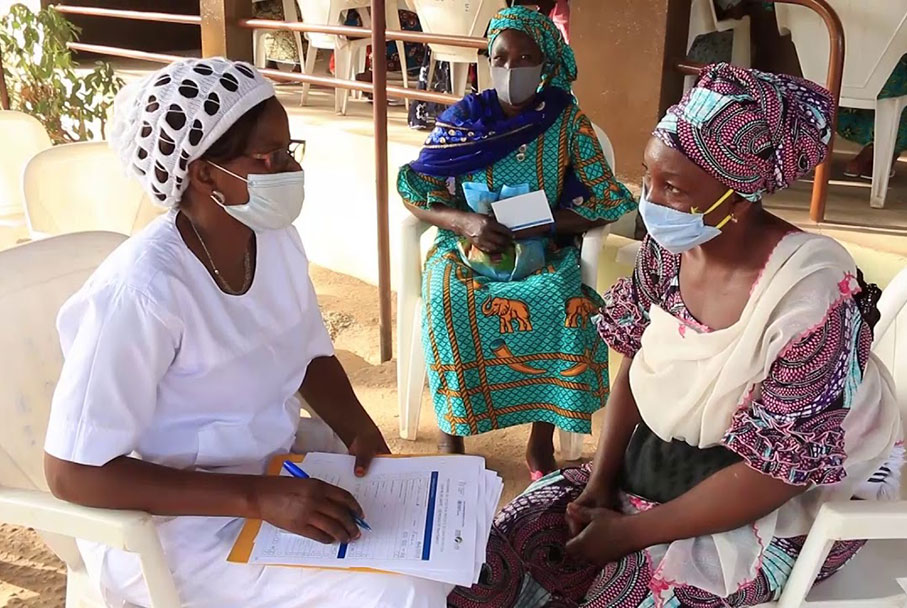
Credit: Edna Fleure
Today, cervical cancer can be prevented with a safe and effective vaccine against the highly contagious human papillomavirus (HPV), which causes the vast majority of cervical cancers. Since HPV is a sexually transmitted virus, it's advisable to vaccinate teenage girls before they start having sex, as the disease manifests itself later in life.
"Women need to know that cervical cancer kills, and that treatment is very difficult. Most of the cases of cervical cancer that we receive come after a late diagnosis, when the chances of cure are minimal."
– Dr Sidi Imorou, gynaecologist in Parakou
Benin is continuing its drive to raise women's awareness of the need for early diagnosis of cervical cancer, which equates to the chance to be saved on time. For this reason, International Women's Rights Day is an ideal time to raise public awareness. Mother's Day is also a time when associations and private clinics offer free screening through mobile health centres. "No woman in Benin should die of cervical cancer": this is the battle the country hopes to win by 2030.
More from Edna Fleure
Recommended for you

